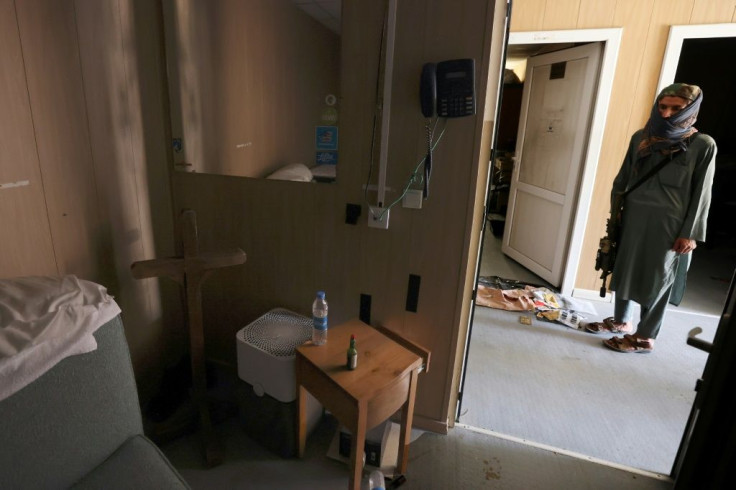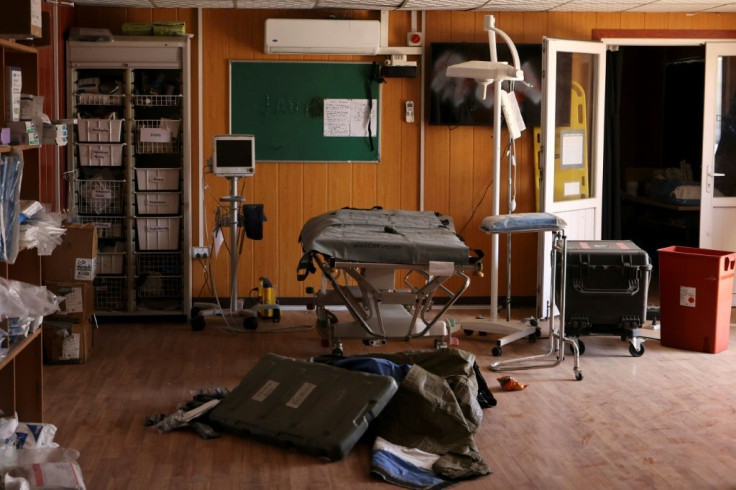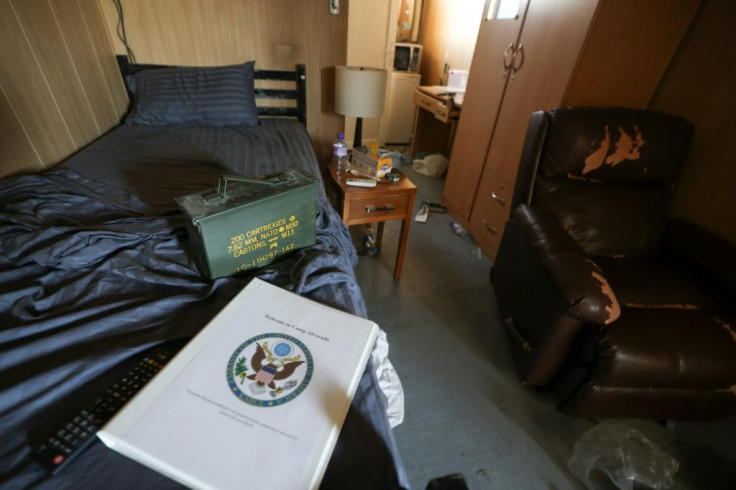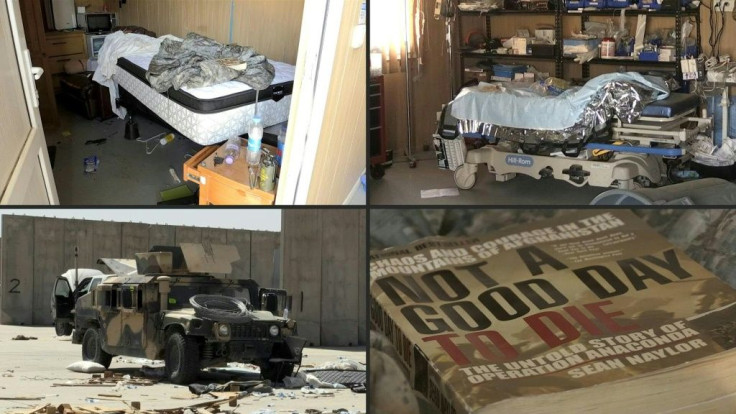At Kabul Airport, Remnants Of US War Bear Testimony To Chaotic Exit
A well-thumbed copy of "Not a Good Day to Die" -- which tells how American forces nearly came undone fighting in Afghanistan in the early stages of the war -- lies on a bed in a deserted US barrack room at Kabul airport.
On a table next to it are two water bottles, a couple of empty bullet casings and a smoke grenade. A bottle of Tabasco hot sauce -- a US military staple -- sits on another.

In a separate room, an overwhelming smell of rotting food pervades as a Taliban fighter armed with an M16 rifle takes pictures on his mobile phone.
A month after the Taliban's takeover of Afghanistan, signs of the 20-year US-led occupation are still visible at Kabul's airport -- including clear evidence of Washington's humiliating exit.
There is even one last message of defiance.

"Taliban, just know you suck," is scrawled on a wall next to a picture of a woman in a tight-fitting dress.
Taliban fighter Abdulrahman barely gives it a second glance as he goes about his business.
US medical kits, vests, shoes, mattresses, toilet paper, documents, and other items are scattered about the military quarters of the airport, not yet disposed of by the new rulers of the devastated country.

The only thing that stops Abdulrahman is a large wooden cross pinned to a wall, which he stares at without saying a word.

Taliban fighters took Kabul on August 15 after a lightning offensive launched in May as the United States and NATO began their final withdrawal.
In the space of 10 days, they seized a string of provincial capitals, meeting little or no resistance in a staggering rout of US-trained and equipped Afghan government forces.

Washington, which had planned an orderly evacuation of Afghans who had helped foreign forces during the 20-year occupation, suddenly had to airlift them out in a hurry.
"The Taliban takeover was unimaginable... but the US exit was truly unthinkable," said an Afghan security guard who had a front-row seat of the withdrawal operation from the civilian side of the airport.
The panic and confusion as the Taliban entered the capital was plain to see, he said.
"It was the first time I saw US soldiers like this."
The state of what has been left behind bears testimony to the panicked exit.
In a field clinic at the US camp, next to a small fire station, first aid kits are hung on sandbags a few metres from an outdoor gym, a volleyball court and a meeting room with red chairs that resembles an indoor cinema.
A strong smell of disinfectant rises from the rooms, where boxes of medical equipment are still untouched and folding beds covered in grey sheets are left open.
US Secretary of State Antony Blinken insisted on Monday the Biden administration had prepared for worst-case scenarios in Afghanistan, as irate lawmakers accused the White House of presiding over a bungled exit.
The US and its allies ultimately evacuated 124,000 people from Afghanistan -- one of the largest airlifts in history -- but even admirers of the operation portray it as "chaotic".
In part of the military side of the airport this week dozens of damaged planes and vehicles were cordoned off by Taliban barricades made of anything from umbrellas to folding metal chairs.
Standing next to a small plane with no doors, a Taliban fighter looks at shattered windows and says loudly with a smile: "Boom, boom, boom."
© Copyright AFP 2024. All rights reserved.











